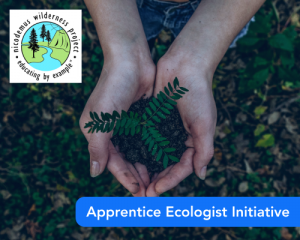Jump ahead to…
- How to win environmental science scholarships
- Resources for environmental science students
- Frequently asked questions
- Additional scholarship categories to explore
How to win environmental science scholarships
Now that you’ve got some great opportunities to apply to, it’s time to begin thinking about your applications. As each scholarship will likely receive many applicants, you’ll have to put in some effort in order to stand out from the crowd. One of the best ways to do this is to sit down and do some reflection before you even look at the prompts. Try asking yourself the following questions, and write down the first things that come to your mind in response. Don’t worry about formatting or succinct wording – just get all your thoughts out on the page:
- What inspired you to study environmental science?
- What have you accomplished that speaks to your potential in the field of environmental science?
- How do you hope to change the world with your environmental science degree?
- What environmental scientists do you look up to, and why? How do you hope to use the lessons you learned from them to shape your career?
- Have you been personally impacted by environmental changes? How has this impacted your worldview?
Once you’ve finished answering these questions yourself, try asking your friends and family for input. Oftentimes, they will remember achievements that you may have forgotten about yourself. Write all of this down and have it on-hand when you begin your essays.
Tips for writing a scholarship essay
Now that you’ve got some good material to use in your essays, it’s time to begin laying out your information in a compelling and succinct manner. Luckily, we have some guides to help you through the process! Check out our guides on how to start a scholarship essay (with examples!) and how to write an essay about yourself. Here are a few more guides that can help you out as you fill out applications:
- How to write a winning scholarship essay
- How to write a scholarship resume
- Tailoring your writing to a 250 or 500 word limit
Resources for environmental science students
National Association of Environmental Professionals
The NAEP is an interdisciplinary national organization for professionals working with the environment. Its membership includes professionals from a wide variety of fields, all tackling the problems of environmental change. This is a great organization to help you contextualize your environmental work in the larger frame of what’s being done to combat climate change, and can offer some valuable networking opportunities.
Association for Environmental Studies and Sciences
The AESS is a national organization that helps improve environmental education across the country. It encourages collaboration between campuses and shared goals in the curriculums for environmental education. You can check out this organization’s efforts to see how you may expand your studies beyond the frame of your campus.
The Ecological Society of America
Environmental science students focusing on ecology should be sure to check out this organization. They offer a wide variety of resources, including national conferences, research journals, and access to databases of ecological studies. This is a great way to plug into a national network of like-minded professionals. You might be able to use this network to find a job, internship, mentor, or scholarship. You may even find the trajectory of your studies and career focus to shift based on what you learn about in their events!
Frequently asked questions about environmental science
Can environmental science majors apply for biology scholarships?
Many biology scholarships are open to environmental science majors, but this varies by individual opportunity. Your best bet is to check each scholarship individually to see who is eligible to apply.
Are environmental science majors considered STEM?
Environmental science is generally considered a STEM discipline! The National Science Foundation considers it to fall under the STEM category. Though individual definitions of STEM may vary, you’ll find that it usually includes environmental science.
What is the difference between environmental studies and environmental science?
Although these two fields address a similar subject matter, they take slightly different approaches. Environmental studies takes a more holistic approach to environmental change. The field addresses societal causes of environmental phenomena. Oftentimes, it will address how policy and political factors have shaped an environmental situation. Environmental science, on the other hand, takes a more technical approach. The field studies how natural systems work and then how different modifications can affect their dynamics.
So, you can think of the two fields as being very complementary. Environmental science studies how an ecosystem works and how different changes may affect it. Environmental studies addresses what has to go on in society to cause human interference, and how environmental changes affect human lives.
That being said, the two are by no means mutually exclusive. Environmental science students will get some education on how societal factors shape environmental change. And environmental studies students will learn about ecology and biology and the inner workings of natural systems.
Additional scholarship categories to explore
- Top biology scholarships
- Top wildlife conservancy scholarships
- Top STEM scholarships
- Easy scholarships to apply for
- Top scholarships for women
- Top scholarships for Black students
Join for exclusive scholarships, personalized matching, and application tracking. 0% Spam, 100% Free.































